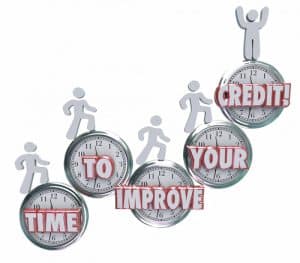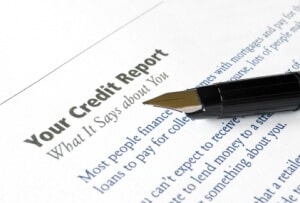Your Credit Score/Report, and how to protect it through COVID-19
2020 has brought fires, floods and COVID-19 all potential damage alerts for your credit report.
The events of 2020 have crushed entire industries, and locked millions of us in our homes, feeling lonely, depressed and experiencing financial difficulty.
For many of us, we are worried about our financial futures, and this includes worrying about our credit report.
Your credit report contains lots of different information, including your repayment history information for the last 24 months.
Here are 10 ways you can protect your credit report in 2020:
1. Don’t enquire for finance online
As a credit repair service provider, we see many consumer reports every week.
When we assess the reports with people over the phone, we see lots of them making the mistake of applying online for finance.
In some cases, people have enquired 10 or more times over a weekend for a personal loan or a credit card.
This has negatively impacted their credit score and credit report.
And enquiries cannot be removed unless they are fraudulent or incorrect.
All you can do, if you’ve applied too many times, is to wait for the affect of those enquiries to wear off over time.
This could be 6 months, or 2 years, depending on the damage you’ve caused.
2. Check your credit report and score on a regular basis
We have 3 credit reporting agencies in Australia. Equifax, Experian and Illion.
Although some credit providers check all 3 reports, they don’t always check all 3 reports.
We do know that pretty much all Lenders check the Equifax report.
Equifax and Illion both provide excellent credit report checking services.
You can sign up for around $10 per month, and you will get an updated score every month.
More importantly, you will be updated if there are any alerts on your file.
3. Don’t apply for pay-day type loans
We all want that pair of shoes, or that nice new outfit at the store or on-line.
We are all impulse buyers in nature as well.
But if you can’t afford the shoes or new bike, don’t opt in for finance to pay for it!
The short term pay day loans offered to us for small purchases are extremely bad for our credit scores.
Just one payday enquiry can lower your score by 150 points.
Save your money instead, and buy the bike from your savings.
You will save yourself a lot of grief with your credit report moving forward.
4. Make sure you pay your bills on time
Missing one repayment can damage your credit report and credit score.
Our repayments on most accounts are now listed on our credit report for 24 months.
Make sure you know your due dates for payments so you don’t affect your credit report with an accidental missed payment.
5. Set up Direct Debits for your bills
A great way to stop worrying about bills is to set up a direct debit for your repayments.
That way, you don’t have to worry about missing a repayment and destroying your credit report.
Also, you can save on payment fees on direct debit, versus credit card payments etc.
6. Contact your Credit Providers if you are experiencing financial difficulties
We have a 15 day grace period to make a payment from the due date on our debts.
That means, if you know you can’t make your payment this month, you have some time to contact your credit provider.
Call or email them to request temporary financial assistance.
This will protect your credit report from any negative repayment history information.
Contact us if you want more information on this.
7. Organise deferrals on loans if you need to
In 2020, many Lenders are offering to defer repayments on some loans.
Or you can ask for a temporary freeze on accounts for 3 to 6 months.
If this helps you get to the other side of our global crisis then get in touch with your Lenders today!
Don’t put your head in the sand.
Call your credit providers or email them and ask them for help.
This could save your credit report for the future when we are all back on our feet.
8. Put some savings away if you can for emergencies
Even if it’s $50 per week, if we have some savings it could help us on a rainy day.
Most families live week to week, so when a crisis comes up, it’s difficult to cope.
Friends of ours recently lost both their jobs due to COVID-19.
Luckily, they had some savings for a future holiday, that they could use to pay bills whilst they organised government assistance.
This saved them a lot of grief, and also protected their credit reports because they could keep up with repayments.
9. Use a finance broker before you apply for finance
As we pointed out earlier, applying online several times can damage our credit report.
It’s a bit like me trying to cut my own hair, instead of going to a hairdresser.
What do you really know about finance?
Shouldn’t you use a finance broker who knows what they’re doing instead of trying your luck at it yourself?
A broker will assess your entire situation and gauge what finance you will be eligible for.
That way, no enquiries are made for finance until solutions are found.
Contact us here if you would like details of some finance brokers in your area.
10. Pay down your credit cards if possible
Our credit card limits are listed on our credit reports.
If you currently owe $20,000 then this is noted on your report.
You can improve your report by lowering your credit card limits.
Can you pay extra some months towards your credit card balance?
Go ahead and do this, and this will help protect your credit report as well.
Wishing you all the best through these tough times.
Please get in touch if you would like a free credit report, a free credit report assessment.

e: info@creditfixsolutions.com.au
National Helpline: 1300 43 65 69



